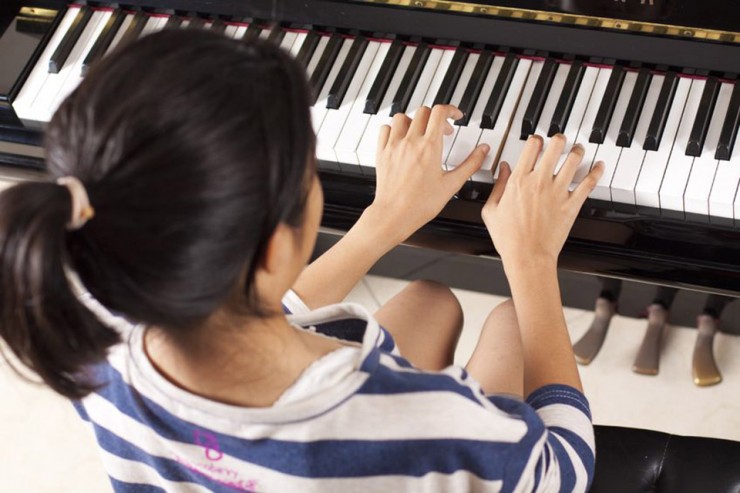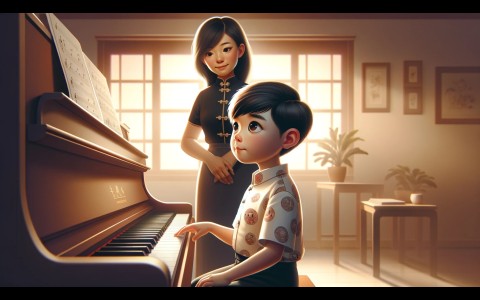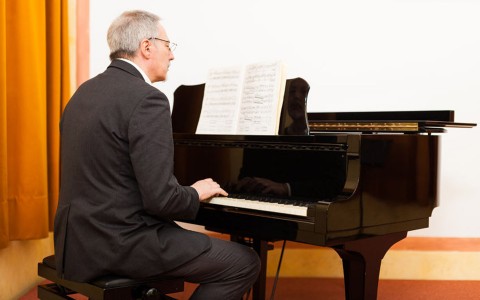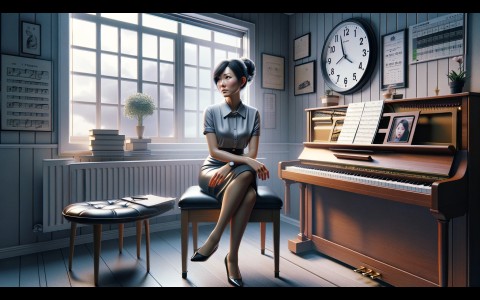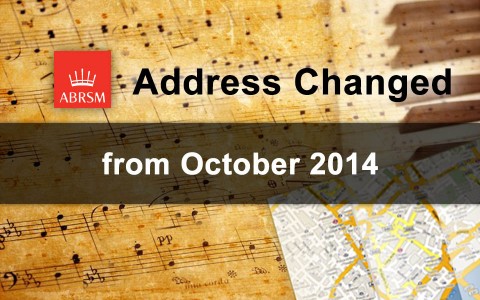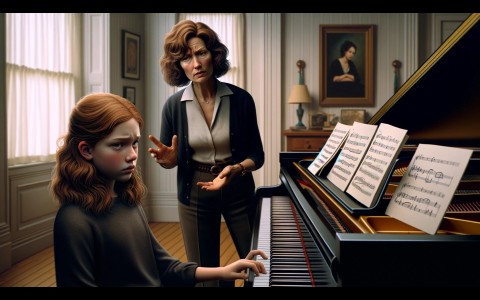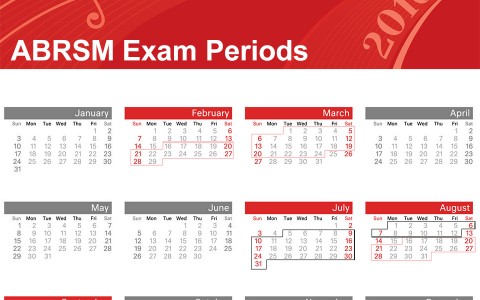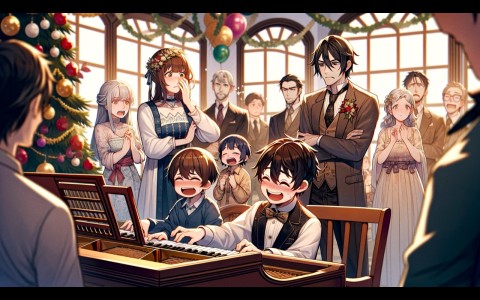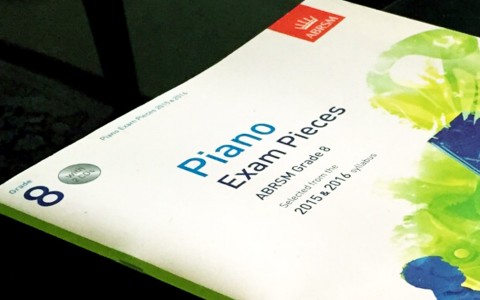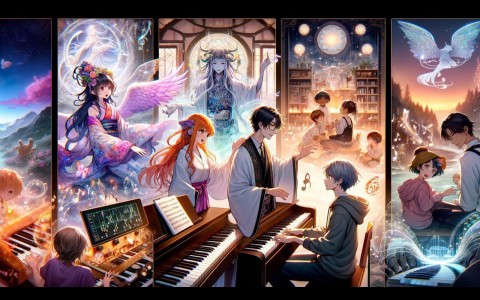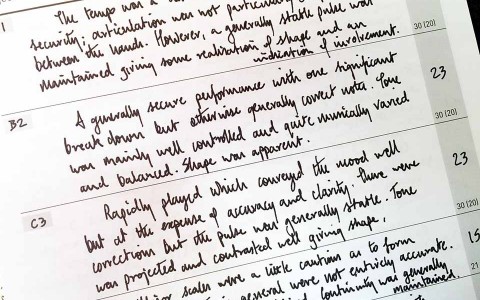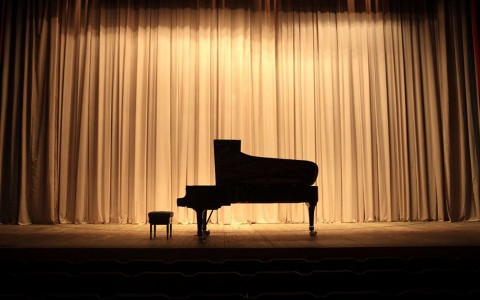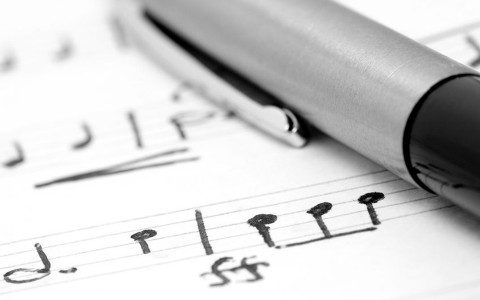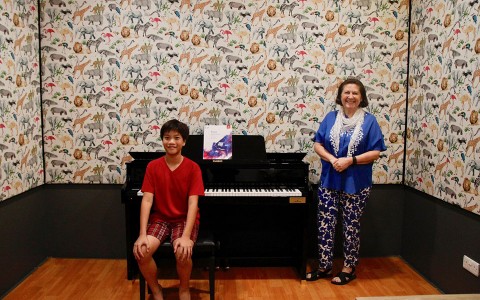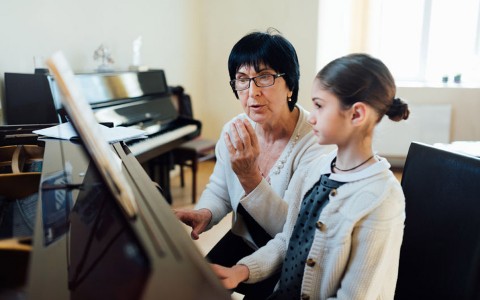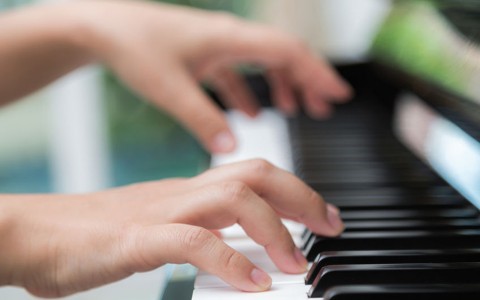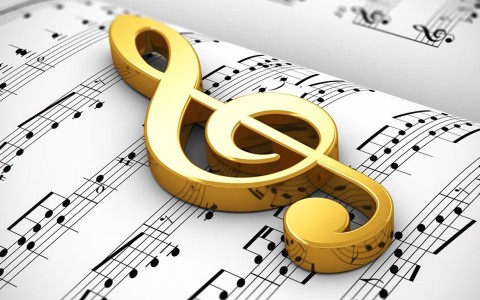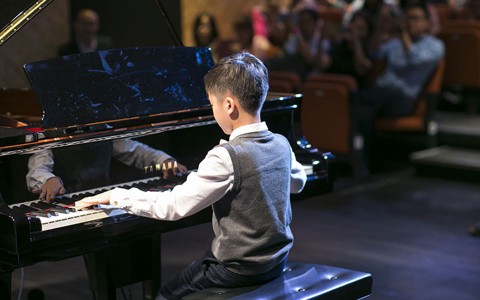Is your child learning just three piano exam pieces, and practicing the same scales and arpeggios day in and out every grading year so that he can take the piano exam? Sounds too familiar? Most importantly, is there anything bad with this approach at all, and is there even any good? Should you, as a parent, be concerned?
Well, I have been giving piano lessons for more than a decade, and it is certainly long enough to have come across a handful of students who were taught in this way by a previous teacher. A possible scenario plays out this way:
Amy (not her real name) calls me. Yup, most of the times, it's the mother who handles the liaising. Amy tells me that her son, Ben (not his real name), is now in Grade 4. Because the current piano teacher wants to stop teaching Ben, Amy has to find another teacher to continue his piano education. We arrange an appointment where I would visit Amy's place to assess Ben.
On the actual day, I bring along some scores which Ben is unlikely to have come across. I talk to Ben to make the situation less tense before I place a Grade 3 piece in front of him, and invite him to try playing it.
"Well, let's begin!", I would excitedly egg him on. Unknown to him, I had already begun observing his foundamentals even before the first note is played. Is the posture correct? Is the piano bench placed at a good distance away from the piano for his build? Is his butt sitting on the correct section of the bench, so that his legs can reach for the pedals?
Ben hits the first few notes. Rhythm is mostly incorrect. He does not notice the key signature, and plays the piece largely ignoring the accidentals he is supposed to play. The way his fingers move does not exhibit a fingering system that should be drilled into his training.
After he played a section of the piece, I invite him to try a second piece, at Grade 2 level. Again, I see the errors. The third piece at Grade 1 level - same observations.
What happened to Ben?
A discussion with the mother after this, usually reveals the wrong approach adopted all along. Now, don't get me wrong. Ben's problem could have been due to many other reasons, and not because of the "exam oriented learning" method. But adhering to such a method, almost always ends up in the above scenario.
How can a student who claims to be a Grade 4, ends up not able to play a Grade 1 piece? His examination certificate certainly shows he has passed Grade 3. It's like saying - this child has passed the Primary School Leaving Examination (PSLE), but he cannot read this very sentence here. Baffling?
If you are to sign up for a language course today - say, Korean; and all the Korean teacher does is to teach you how to write this 150-words essay. Each time you go for the class, you are taught one sentence. And you start to memerise every stroke, and every word. You would also repeat writing those words learned in the previous classes. Well, that should work, since everyone knows the essay title right from the start. Finally, you take the exam, and all you have to do is to regurgitate the whole essay you diligently memorised over the year. You passed - probably with flying colours. This method is repeated for the Intermediate, and for the Advanced Level. Now, if one day, a Korean friend asks you, "당신이 사과 를 먹는 것을 좋아 합니까?" - what are the chances that you can reply him in Korean decently, and engage in a simple normal conversation?
Playing piano is an art and skill, just like acquiring any other. You have to pick up the fundamentals - learn how to read the scores, know what the symbols and musical terms mean, interpret what the composer's original intent for this piece is, understand the fingerings, feel the musical sentences, appreciate the piece itself, and so on. Simply put, playing piano is an art that needs to be cultivated, and not "achieved" through memorisations.
The repertoire (stock of piano songs that a person knows) will be small. Just that couple of pieces each year is not going to open the world of music to the student. There are so many wonderful and beautiful Sonatas, Waltzes, Concertos, Symphonies, and even contemporary music; that we can show the student, and let him be drawn into. Teach him to have a passion for the instrument itself, thirst for knowledge and hunger for musical excellence; and his achievement will be a self motivated and rewarding one.
Another consequence: the student is unlikely to stay interested. What can be so interesting about playing the same set of pieces and drills everyday, and this approach year after year with the next set? Paper chase in this form almost never groom a student to be a master of himself, and of the instrument. Every student is different, and the teacher has to innovate, and adapt his teachings to that individual. I have a student who is very interested in Japanese Animes. By letting him teach me about anime piano pieces, he is able to channel his passion positively into hours of research, analysis and practice. Some of the pieces are technically very challenging, but that doesn't stop him at all - there is a certain fuelling force inside him that has set himself on a momentum that would propel him to move on and on, to a next higher level.
There is only one good I can think of - the student gets the certification faster. This is actually desirable to parents who want their kid to have an advantage, when applying for a school's entrance, or any other purpose which requires the cert. But bear in mind that that is not a true representation of his skill level.
However, it is possible, after all these, to still pursue the music education in its true spirit; and that the student can grow his interest and passion in the instrument. It takes an orchestrated effort between the parents, student, and the new teacher to set the course in the right direction.
